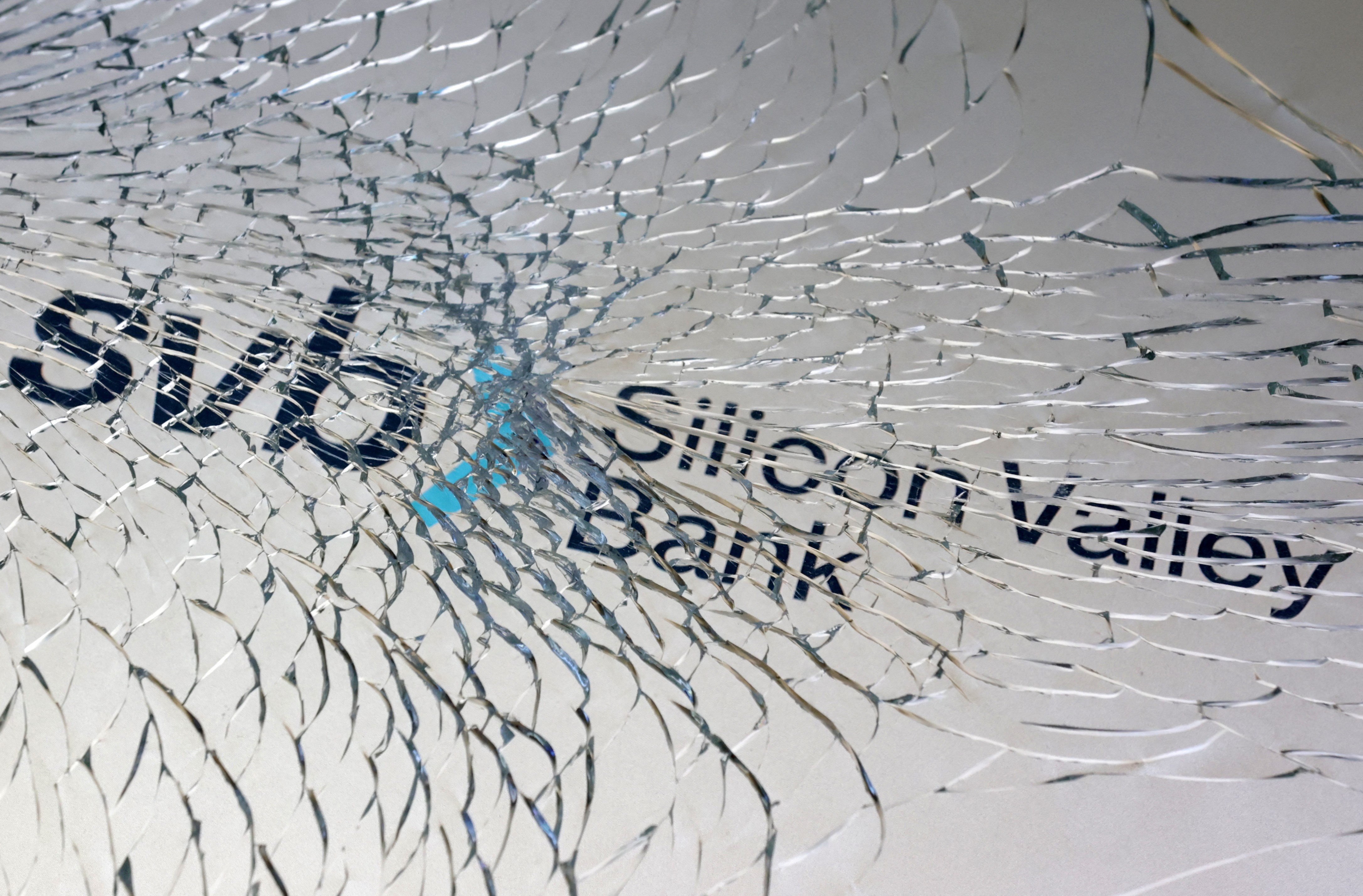SVB crash a lesson and reminder for Asia to distrust US financing
India's minister of state for technology, Rajeev Chandrasekhar, says that the crash should serve as a lesson to local startups who should trust India’s banking system more.
-

The logo of the Silicon Valley Bank under cracked glass. (Reuters)
The crash of Silicon Valley Bank rattled the confidence in Asian start-ups overly reliant on US tech financing, which Wang Guanyan, an executive of a China-based startup that develops virtual-reality games, described as a reminder to "review our reliance on investment from the US".
“Still, for small companies like us, we probably don’t have the luxury to be picky about who we take money from, especially with the challenging macro conditions,” Wang stated, adding that his company intended to transfer their deposits from SVB back to China.
Following the collapse, “those startups lose an important financing channel and need to find other ways to raise money, especially from US dollar funds,” said Xinyao Wang, a healthcare equity analyst.
With SVB having branches in Beijing, Shanghai, and Hong Kong, it headed a delegation of US-based venture capitalists to China in 2004 to look into investment opportunities with Chinese entrepreneurs.
At least 12 Hong Kong-based companies confirmed that they have banked with SVB, and many said the money they had with Silicon Valley Bank was immaterial, meaning it did not hold much importance.
BeiGene Ltd., a biotech company for cancer treatment drugs, is one of those firms which holds an uninsured equivalent of around $175.5 million in cash. It said that it doesn't anticipate the recent collapse to affect its operations much, as it spread its investments with other financial institutions such as JPMorgan Chase & Co. and Morgan Stanley.
A lesson to trust home banks more
In India, the country's Minister of State for Technology, Rajeev Chandrasekhar, tweeted on Monday that the crash should serve as a lesson to local startups who should trust India’s banking system more.
Read next: India's SVC not US' SVB: Name confusion creates chaos, instigates fear
“You need the certainty of having money in the bank,” said Srikrishnan Ganesan, the India-based co-founder and chief executive of software startup Rocketlane, which was founded in 2020 and kept between 16% and 17% of its US cash in SVB for its American staff.
Luckily, Ganesan transferred his funds to another bank last week right before the SVB crisis. He expressed that a lesson he learned was not to center too much capital in one institution or to rely on one specific supplier.
Jensen Ye, the co-founder of a startup that provides blockchain encryption services, said he deposited $7 million from a US-based fund in December with SVB. The startup, originally founded in China and is now in Singapore, intended to use the funds to pay for staff and expand his business, but has now asked colleagues to seek two bigger banks to deposit the money.
“I didn’t even think that it was unsafe that we put all our eggs in one basket, because I felt like it was a concrete basket,” he said.
Sign of the times
In light of the fresh closure of Silicon Valley Bank and Signature Bank, former US president Donald Trump announced that this was a sign of the times of economic downfall in the US.
"Two big banks yesterday closed, that's a bad sign, that could be the beginning," he stated, referring to the banks' collapse.
America's 16th-largest bank has seen 60% of its shares plunging on Friday, making it the second largest bank failure in US history following the great market collapse of 2008, prompting regulators to seize its assets and halt trade on its stocks in Nasdaq, AP reported on Saturday.

 4 Min Read
4 Min Read








